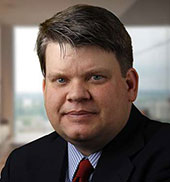Can an “unrestricted” release be restricted?
That is one issue raised in connection with a model’s suit against Getty Images. Elodie Passelaigue made various legal claims against Getty Images over its licensure of an image of her for Botox ads.
Getty, in a motion to dismiss, cited the broad release that Ms. Passelaigue signed after a professional photographer shot photos of her in a test for Clinique. The one-page, two-paragraph model release granted the photographer “the unrestricted right to use [her] appearance, form, likeness and voice, … contained in the photographs” and to distribute the images “for editorial, trade, advertising, packaging, or other purposes in any manner or medium … throughout the world, in perpetuity.”
In the release, she also waived any right to inspect or approve use of the images, and she released the photographer from liabilities for any use of the photo “even if such use is unflattering, embarrassing or objectionable.” The release also permitted sale or licensure of the photos to a stock photo agency.
But she sued anyway. She asserts that she was unaware of the release terms, and that she relied on oral statements of the photographer, allegedly inconsistent with the release. She objected to use of headshots of her in online ads for Botox and other Allergan cosmetic pharmaceutical products. In its motion, Getty stated, “No amount of model’s remorse can change the fact that she has relinquished her rights to pursue this case.”
Surprisingly, claims like this are not unusual. We’ve handled multiple cases of photographers who signed releases or licenses, but nonetheless later claimed that use of his or her photograph, by the licensee, constituted copyright infringement.
In one case, a photographer disputed her agent’s agreement for use of her photo in a magazine. In another, a photographer disputed how his photo was used, despite having signing a license for “any and all” uses. In yet another, a photographer argued that a phrase he used in his license didn’t mean what his customer believed it did.
Unfortunately, in photography litigation, it isn’t uncommon to have a dispute about the meaning of the word “unrestricted.”
Mark Sableman is a partner in Thompson Coburn’s Intellectual Property group. You can find Mark on Twitter, and reach him at (314) 552-6103 or msableman@thompsoncoburn.com.







